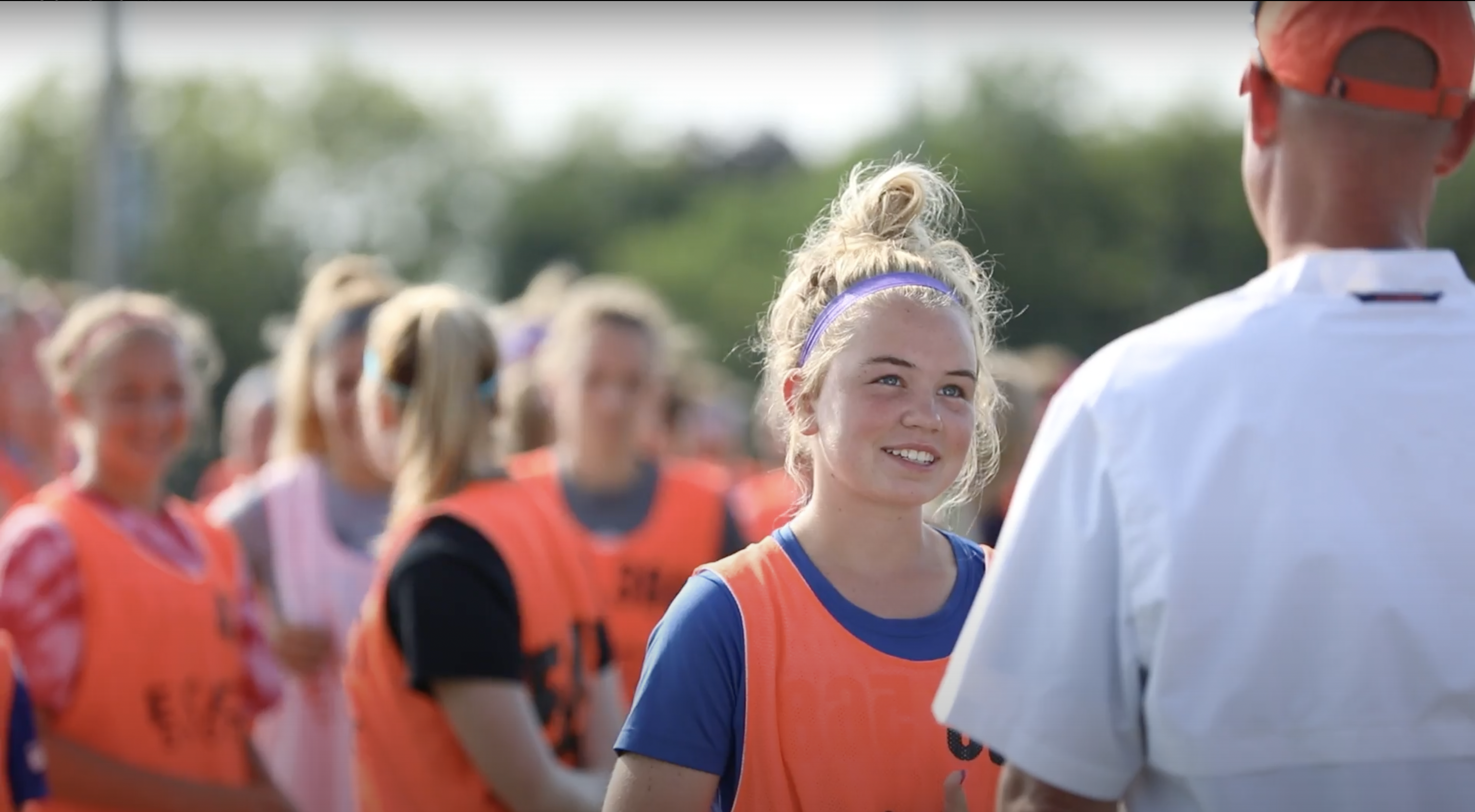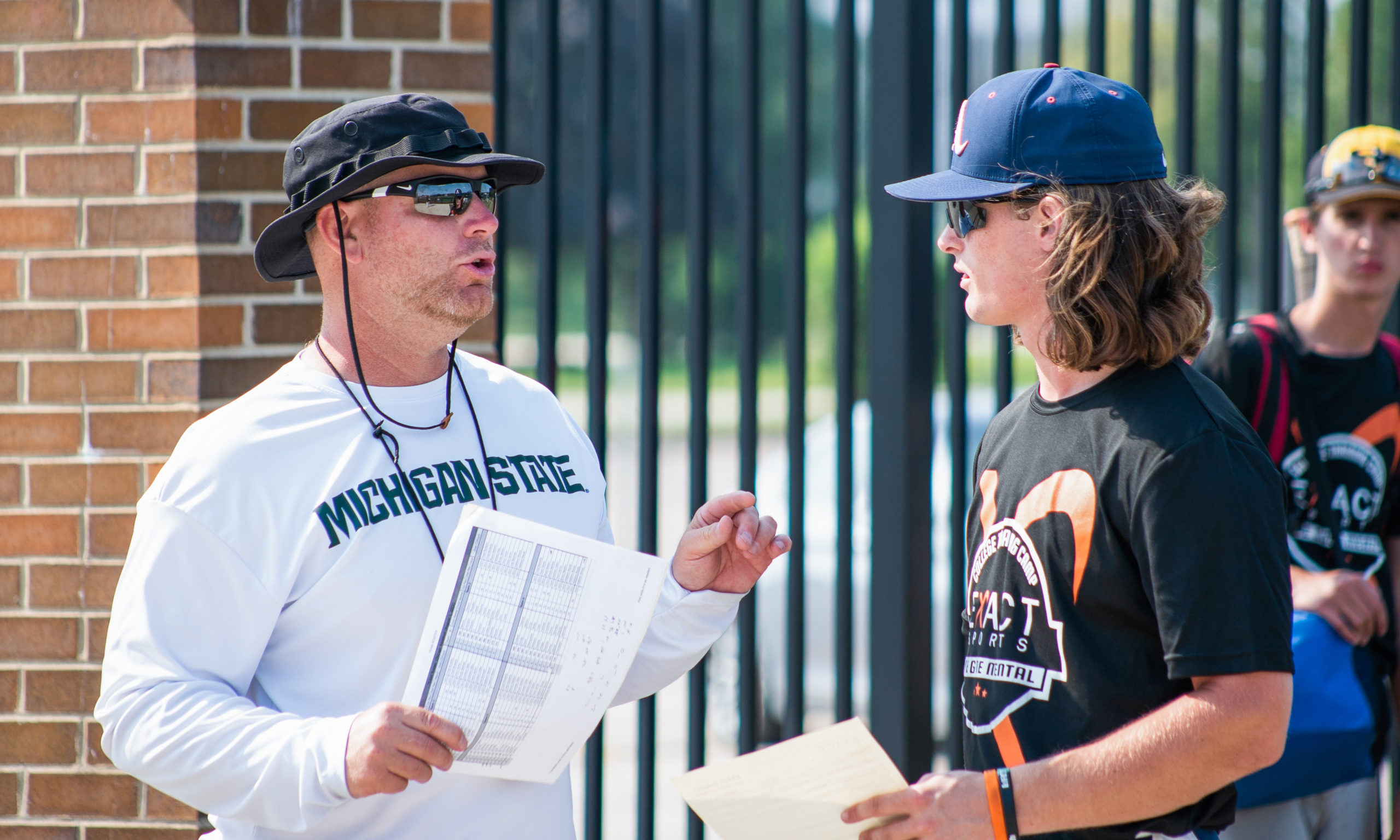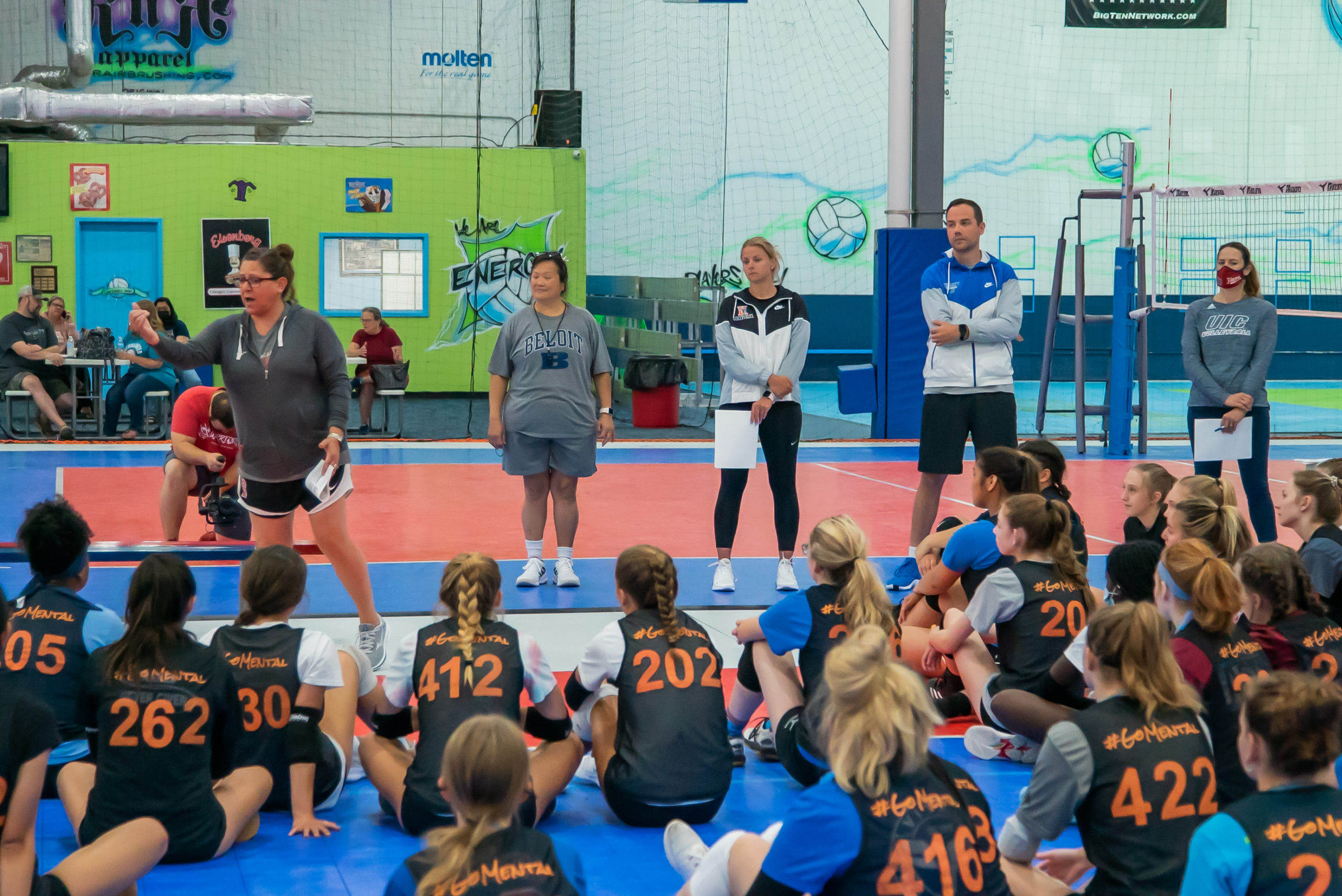
The College Recruiting Process
The college recruiting process can be met with confusion and frustration followed by unanswered questions that need clarification within a small time window. Bottomline, it's no easy process without the proper path forward. Luckily, EXACT Sports has been an industry leader in college recruiting education for over 15 years. With the largest nationwide network of D1, D2, and D3 NCAA and NAIA college coaches, EXACT has helped thousands of aspiring college athletes navigate the college recruiting process.
Over the years, EXACT has learned what it takes for young aspiring college athletes to be recruit ready. This article will act as an insightful blueprint for a successful outcome; here is an ultimate guide to college recruiting.
When To Start The Recruiting Process
Right away! The college selection process is not a quick process or one that should be rushed. So the earlier you set out, the better. Many college coaches recommend attending showcase camps and college id camps as early as 8th grade of High School.
The college recruiting calendar may differ from sport to sport and most NCAA Division I and Division II sports do not permit coach-to-player contact until June 15, after an athlete's sophomore year of high school. However, the rule binds college coaches, not student-players. It's never too early for a student-athlete to contact a coach. In fact, the earlier you make contact, the better, which is why being proactive and sending a compelling email is very important.
It is recommended that a typical highschool athlete begin the college research process by their junior year, which is around the time when SAT and ACT tests begin. If you're looking to play sports in college, your best bet is to make contact with coaches during your sophomore year in high school or by junior year at the latest. DI schools are on the lookout for younger players and often recruit players as soon as it's legal; in the ninth grade of high school.

What To Email A College Coach
When writing an email to a college coach, you want to put your best foot forward and make a strong impression. Here's a complete guide to crafting emails that college coaches actually read.
The Subject Line
Write an great subject line. The subject line is what the coach sees first and determines whether or not your email gets opened in the first place. Your skills on the field or court might never be seen by your desired college if you don't take that extra moment to fine-tune your subject line.
The subject line should be informative and direct to avoid any confusion by the coach. Be sure to include the following in your subject line:
- Your full name
- Your graduating class year
- Your GPA
- Your athletic position(s)
You may also add in an intriguing fact about yourself. What you add in may vary depending on what college you're applying for and what piques the coach's interest.
Adding in your city and state, though optional, is also a good idea.
Subject Line Tips
- Make your subject line informative as well as intriguing.
- Avoid using generic subject lines; they are unlikely to catch the coach's attention.
- Limit your subject line to 50 characters or less. Keep it short and sweet!
- A college coach may choose to leave a message unopened just like you sometimes leave some emails unopened for days, weeks, or even months because they don't interest you. So, help the coach know what the message is about by writing a compelling subject line.
A Good Subject Line
Soccer (in an academic-focused college): Steve Crane 2023 Grad 3.8 GPA 1400 SAT Soccer Highlight Video Attached
Volleyball (Libero): Steve Crane 2026 Grad 5'9'' 172lbs 6.75 60-yard dash Skill Video Included"
Basketball: Steve Crane 2022 Grad 6'4'' References Included
Show Coach That You Did Your Research
It's important to make a great first impression. In a sentence or two, mention a recent fact or statistics about the team and express how that relates to you and/or your application.
Research Example:
“I recently read an article on top soccer programs with academic performance and saw that your program was ranked best overall in both sports and academics. I'm delighted to see other players who are dedicated to all-round excellence, as I'm dedicated to bettering my game and excelling in academics.”
Introduce Yourself
A key function of the email is to introduce yourself—this way the coach can get to know you. Put out that valuable info that every college coach wants to know. Express concisely who you are and why you're sending the email.
Information to include:
- General Bio: Full Name, graduation year, club name and/or high school and location
- Academics: Test scores, GPA.
- Athletics: Player stats, notable wins/ titles, highlight and/or skills reel
- Contact Information: Your contact information and your highschool/club coach's contact
Invite the College Coach to Come See You Play
Remember, you're sending the email hoping to become a signed athlete at college, not merely to introduce yourself. So, give a strong call to action. Let the coach know your upcoming game schedule and where they can watch you play first-hand. This could be at one of your games and/or an ID camp.
You may also include a link to a video of yourself in action during a game. This should preferably be a snippet from a game, say 10-15 seconds, as most coaches don't have the time to watch an entire game so be sure to only show your best.
This is consistently practiced at college id camps, college showcase camps, and showcase events for athletes.

Follow Up With College Coaches
After sending the first email in which you introduce yourself to the college coach and express your interest, you still have a lot more communication to do. It's not time to sit back and watch it all unfold. If you sit back, you'll likely see nothing unfold and miss out on a great opportunity.
Your follow-up email is just as important as the introductory email. As a rule of thumb, once you initiate contact with a college coach, don't stop communication until you're expressly told that there's no space for you on the team. This is the advice that EXACT's college coach network gives EXACT athletes during a national showcase camp. Is this to say, spam the coach with numerous repetitive emails? No, but an email once a month isn't going overboard.
Build A List of Colleges and Attend College ID Camps
Student athletes always have their dream colleges in mind and know what role they want to play on a team. However, getting those colleges to recruit you isn't an easy task. Most top colleges are extremely competitive, and even if you do manage to get in, you might not get the role you want on their program.
It helps to build your list of potential colleges through in-depth research. Ask yourself: "What other colleges could be a a potential fit for me?" Be sure to add them to your list. When it comes to building your list of potential colleges, there is no one-way solution, so stretch out the possibilities and be open minded in your search.
A valuable opportunity that will optimize your recruitment process is to attend College ID camps like EXACT’s national college exposure camp where you connect with college coaches from across the country who can influence your recruitment.
It is very common for the college coaches from your top-pick schools to be involved at ID camps or showcases. If you get the chance, attend one and take full advantage of the valuable experience.
In an EXACT Sports interview, Dwight Hornibrook, head coach of women’s soccer at Cornell University said, “Go to ID camps, meet college coaches, stand out in your followup emails, and consistently give college coaches your A-game.”
How D1 Schools Recruit Athletes
When you hear about athletes committing to schools in the 8th grade or sooner, those are DI programs. These coaches are racing one another to find the next best athletes and this has lead them to begin evaluating athletes before they are even in high school. This does not mean your chance of playing DI sports is over before high school, but you need to be prepared to be making the right recruiting moves by the time you are in your freshman year.
It is also these same coaches that are aggressively recruiting athletes who are verbally committed to another program. It used to be it was only Football and Basketball that openly recruited verbally committed athletes, but we are starting to see it happen in almost all sports. These types of aggressive recruiting tactics are not good for the athlete or the coach, but they are a reality at the DI level. DI coaches are recruiting every athlete they want right up to signing day and as a recruit, you need to keep the same perspective.
Make no mistake, DI recruiting is not a recruit/family friendly environment. If you want to play D1 sports, there is no avoiding the facts, you will need to show DI potential early, play against other elite athletes and be prepared to make high pressure decisions about your college future very early.

